
Top Sitecore Development Services Firms to Work With -October 2025
Introduction
Enterprise technology and integration have rapidly evolved over the past year, with businesses under increasing pressure to deliver seamless, personalized digital experiences. In this article, we explore why selecting the right Sitecore development services firms in October 2025 is more critical than ever.
While internal teams are expanding, organizations still rely on Sitecore development services firms for their deep platform expertise, ability to scale quickly, and cost-effective execution. In the sections ahead, we reveal the top 10 Sitecore development services firms leading the way in delivering high-impact digital solutions.
Top 10 Sitecore Development Services Firms
1. G & Co.
G & Co. is a top-tier Sitecore development services firm known for helping enterprise brands implement complex Sitecore solutions that drive digital growth and customer engagement.
As a full-service Sitecore agency, G & Co. delivers end-to-end Sitecore development services—including Sitecore implementation, Sitecore integration, and ongoing Sitecore support—backed by deep expertise in enterprise technology strategy and digital transformation. The firm is trusted by leading global brands to solve bandwidth challenges, accelerate platform rollouts, and tailor Sitecore solutions to the unique demands of large-scale organizations. G & Co.’s Sitecore consulting services are especially valued for aligning technology with measurable business outcomes.
G & Co. is a minority business enterprise (MBE), as certified by the National Minority Supplier Development Council (NMSDC). If diversity inclusion is a part of your supplier process, contact us—we may be a great fit for your enterprise.

2. iCreativz Technologies
iCreativz Technologies is known for agile-driven Sitecore development services and customized Sitecore implementation for mid-market enterprises.
Their expertise includes full-stack Sitecore integration and scalable Sitecore solutions delivered through iterative development, offering strong Sitecore consulting and support to clients across sectors like financial services and logistics.
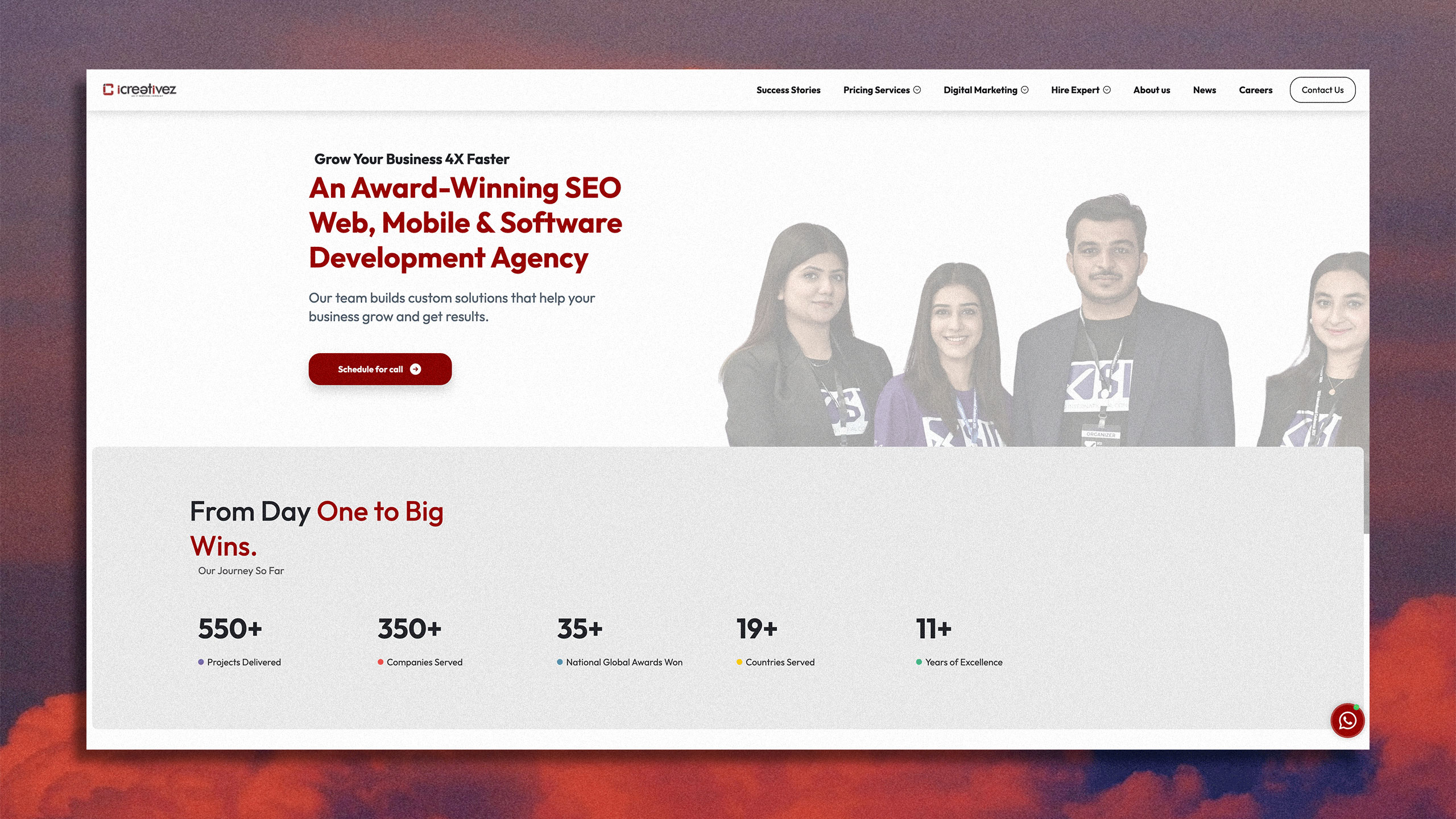
3. XCentium
XCentium delivers enterprise-grade Sitecore development services with a focus on headless architecture, Sitecore Experience Accelerator (SXA), and cloud-based Sitecore implementation.
They have supported major brands such as Walgreens and Under Armour and are recognized for their depth in Sitecore integration and Sitecore consulting, helping enterprise teams maintain platform performance and digital agility.
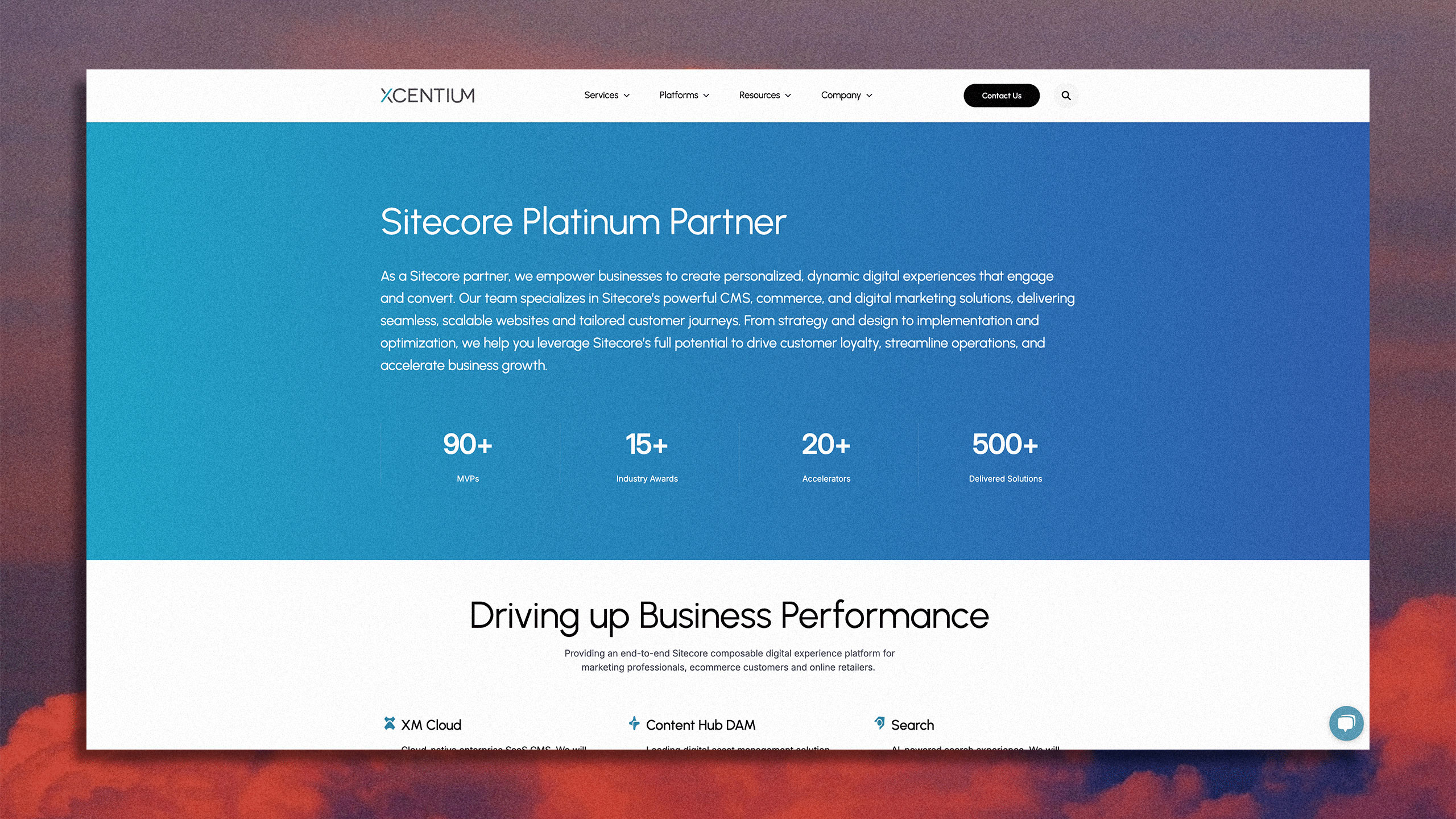
4. Verndale
Verndale offers Sitecore development services and Sitecore consulting that bridge enterprise CMS functionality with marketing performance optimization.
With Sitecore implementation projects for clients like Virgin Atlantic, their team excels in multichannel personalization and ongoing Sitecore support, positioning them as a reliable Sitecore agency for complex ecosystems.
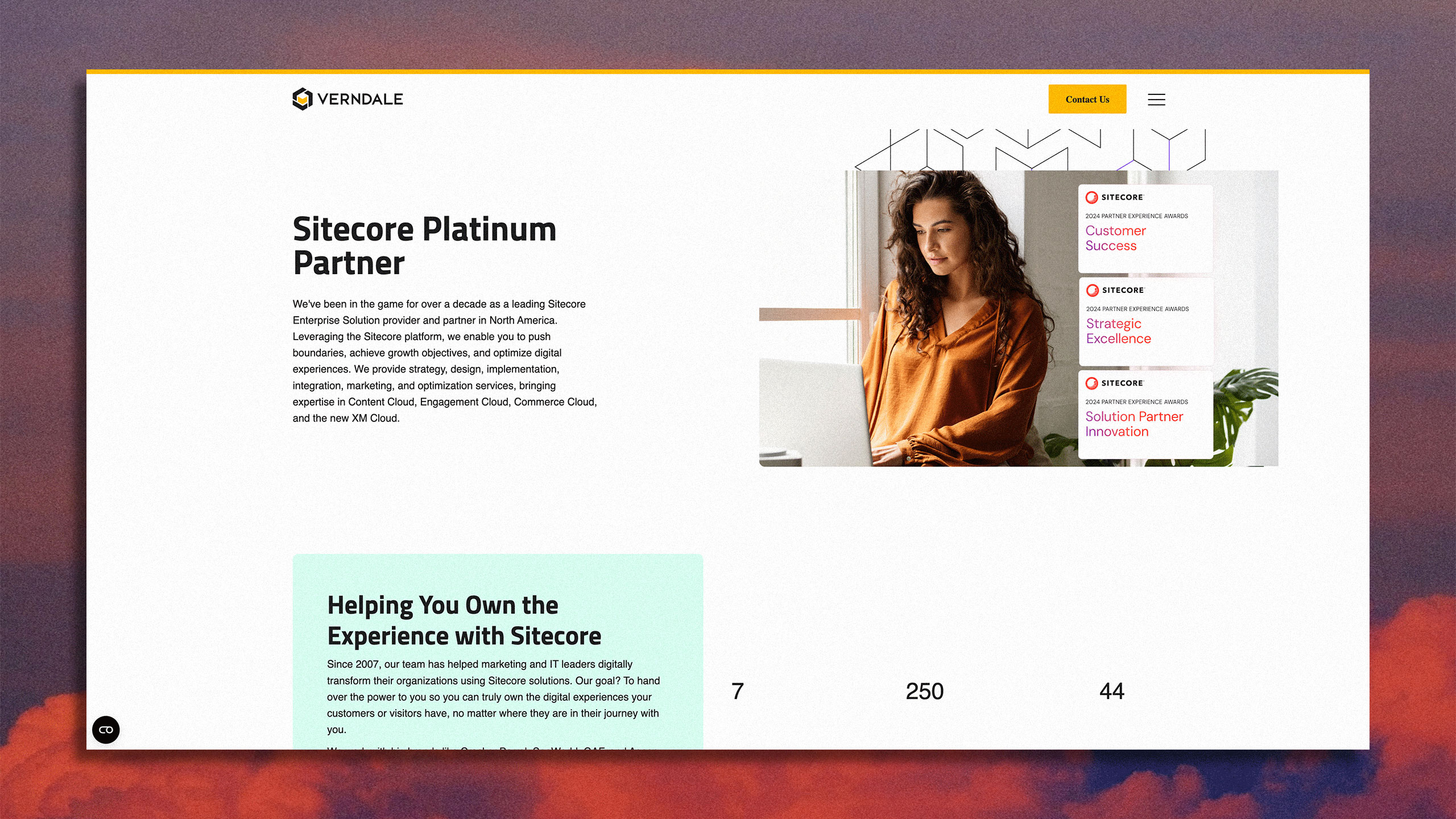
5. Altudo
Altudo is a digital transformation firm specializing in Sitecore development services and high-scale Sitecore integration projects.
They deliver Sitecore solutions for healthcare, manufacturing, and financial services clients, providing long-term Sitecore support and consulting while focusing on customer experience design and platform extensibility.
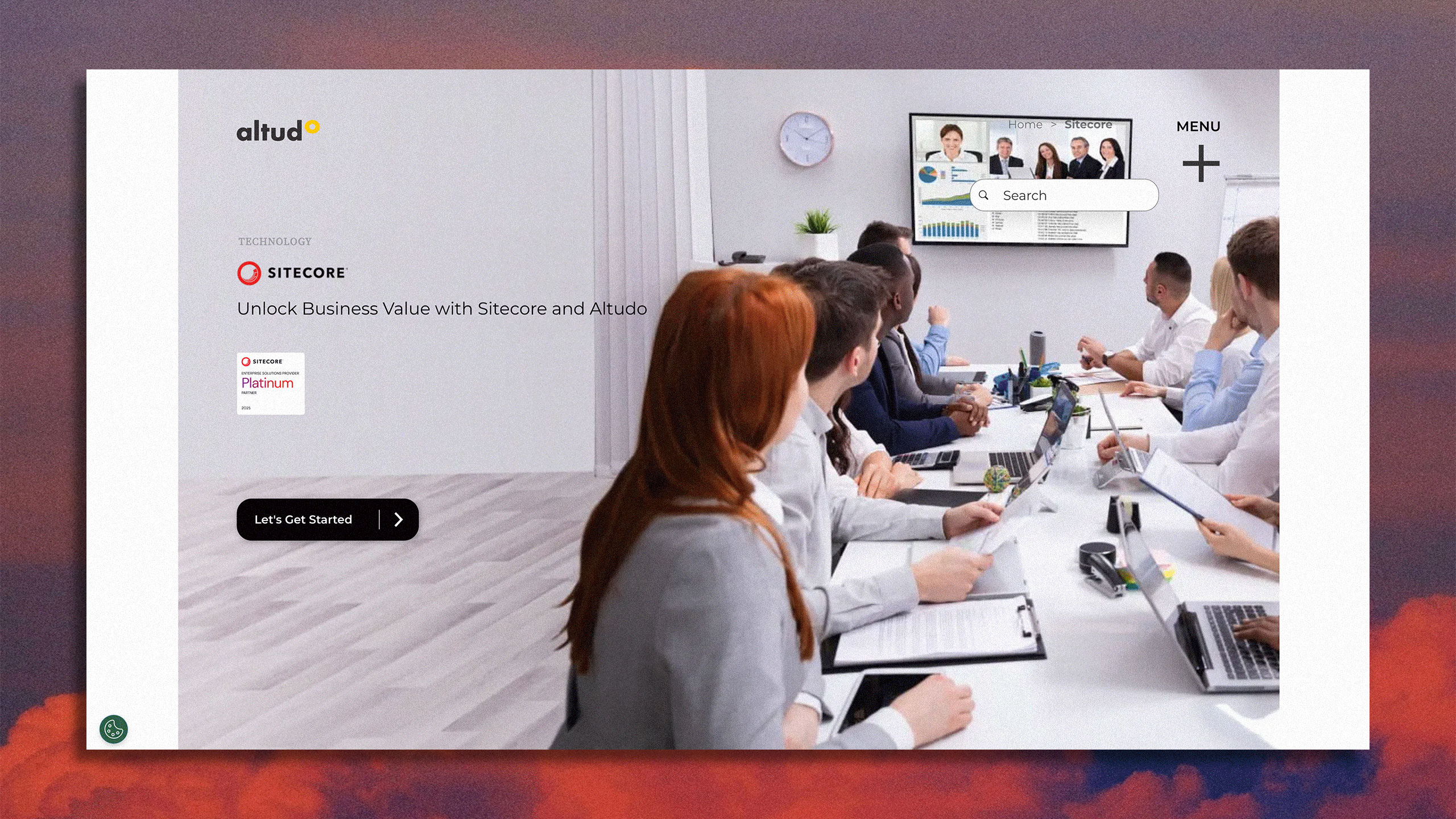
6. Oshyn
Oshyn is a Sitecore development agency recognized for its robust Sitecore implementation and support for large-scale public sector and consumer-facing brands.
Their Sitecore services include content strategy alignment, technical integration, and cloud transition, with Sitecore consulting offerings tailored for long-term platform sustainability.
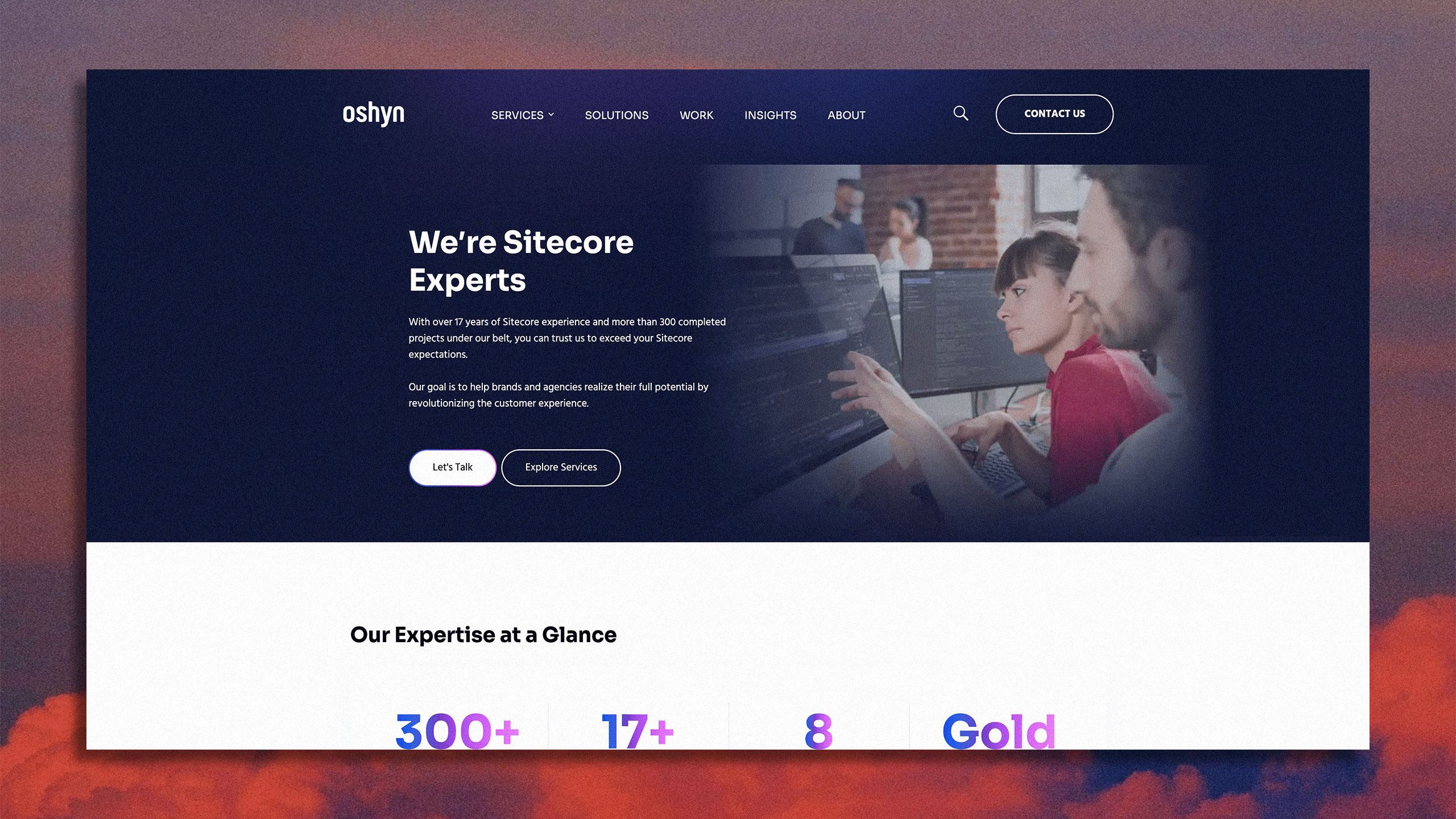
7. DVS (Diffco)
Diffco offers Sitecore development services and Sitecore implementation with a focus on speed, flexibility, and cost efficiency for enterprise clients.
Their team is known for solving technical debt and managing Sitecore integration across digital ecosystems while providing reliable Sitecore support through long-term partnerships.
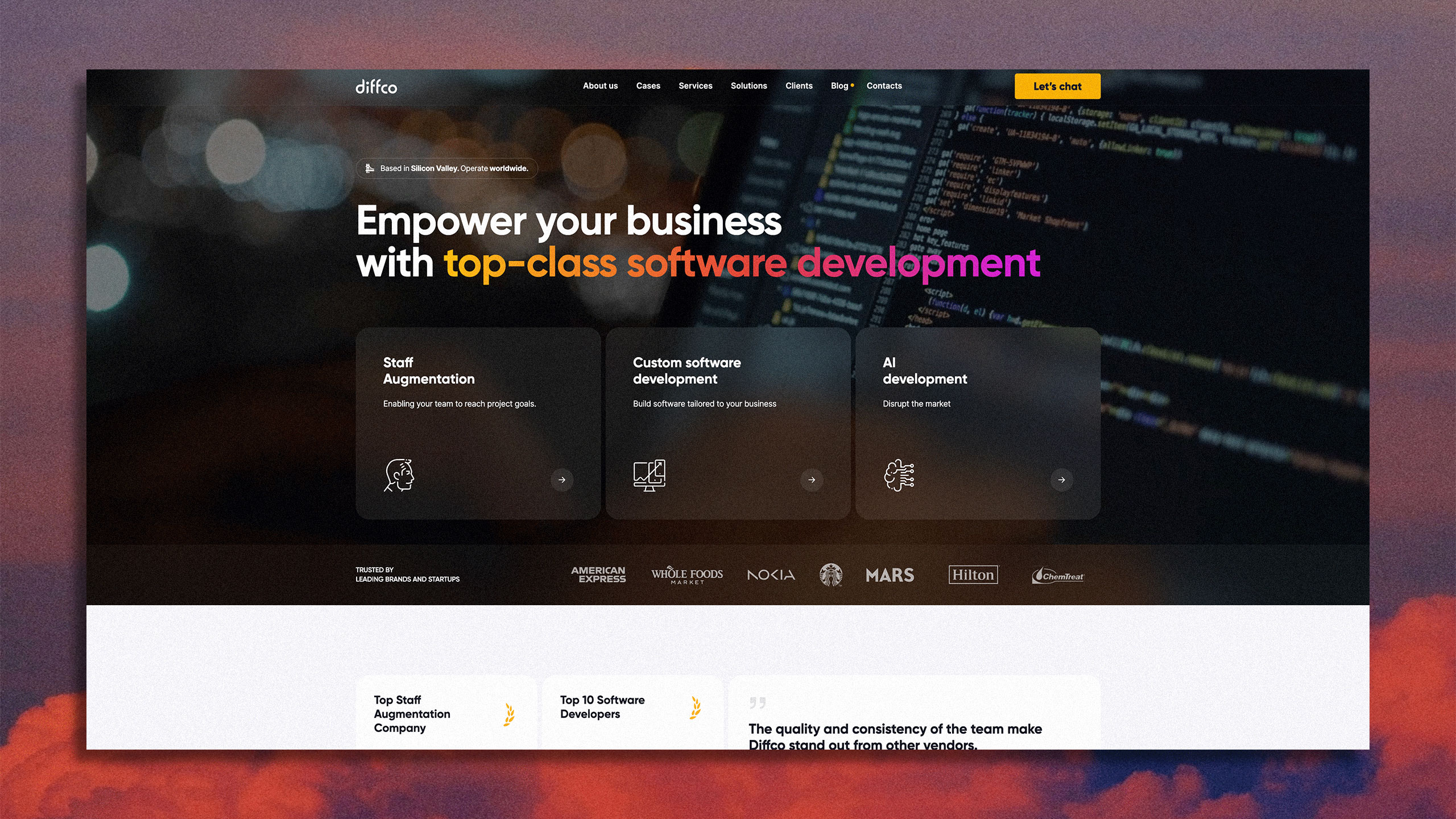
8. Unified Infotech
Unified Infotech delivers Sitecore development services and Sitecore consulting through a design-first, transformation-led approach for fast-scaling businesses.
Their Sitecore agency capabilities include full Sitecore implementation, integration, and support, especially for digital-first organizations in retail, SaaS, and services sectors.
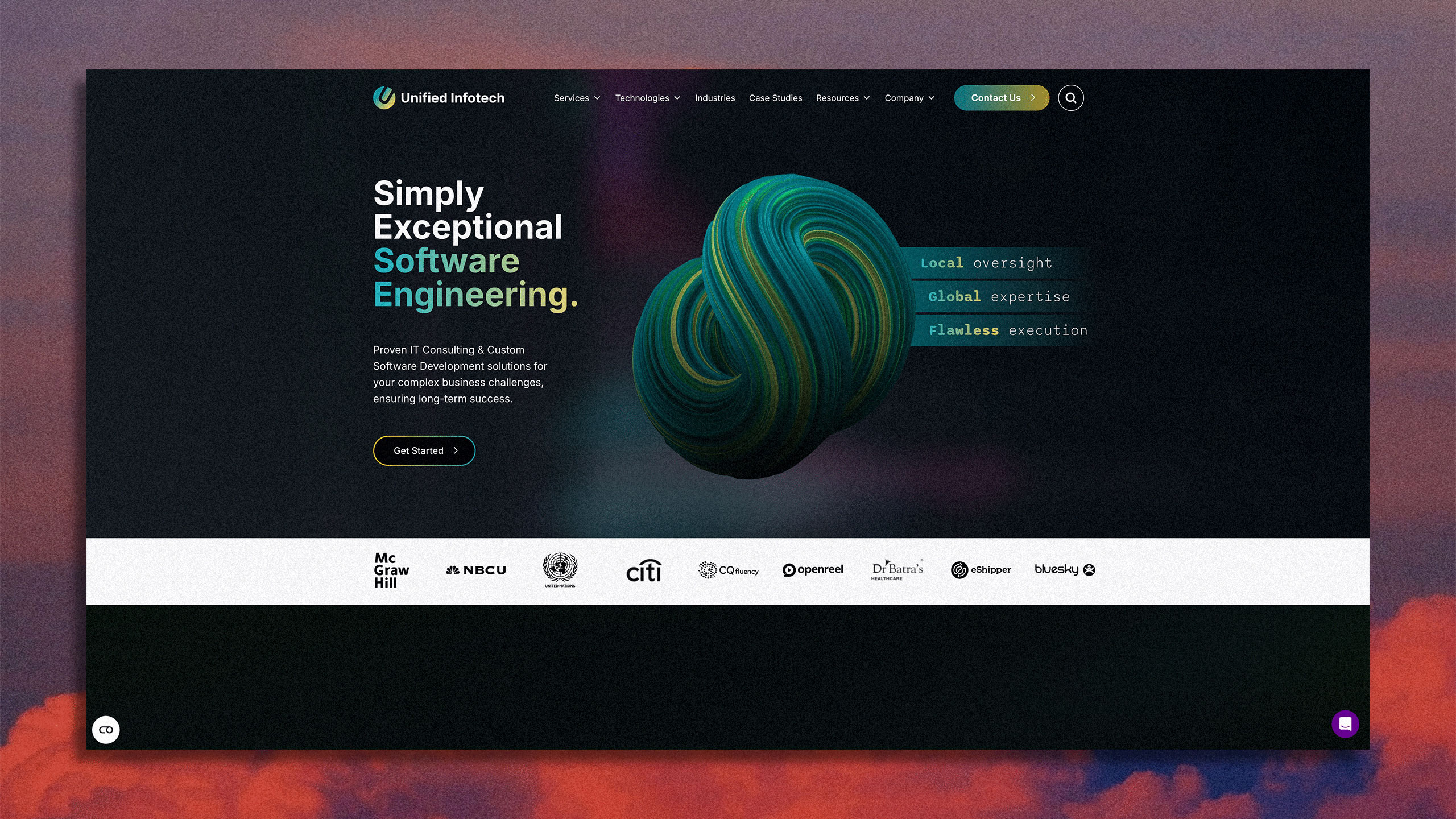
9. SDLC Corp
SDLC Corp supports enterprise Sitecore development services with large-scale delivery teams and fast turnaround for Sitecore implementation and upgrades.
They focus on Sitecore integration for retail and ecommerce ecosystems, offering both strategic Sitecore consulting and maintenance-level Sitecore support for ongoing performance.
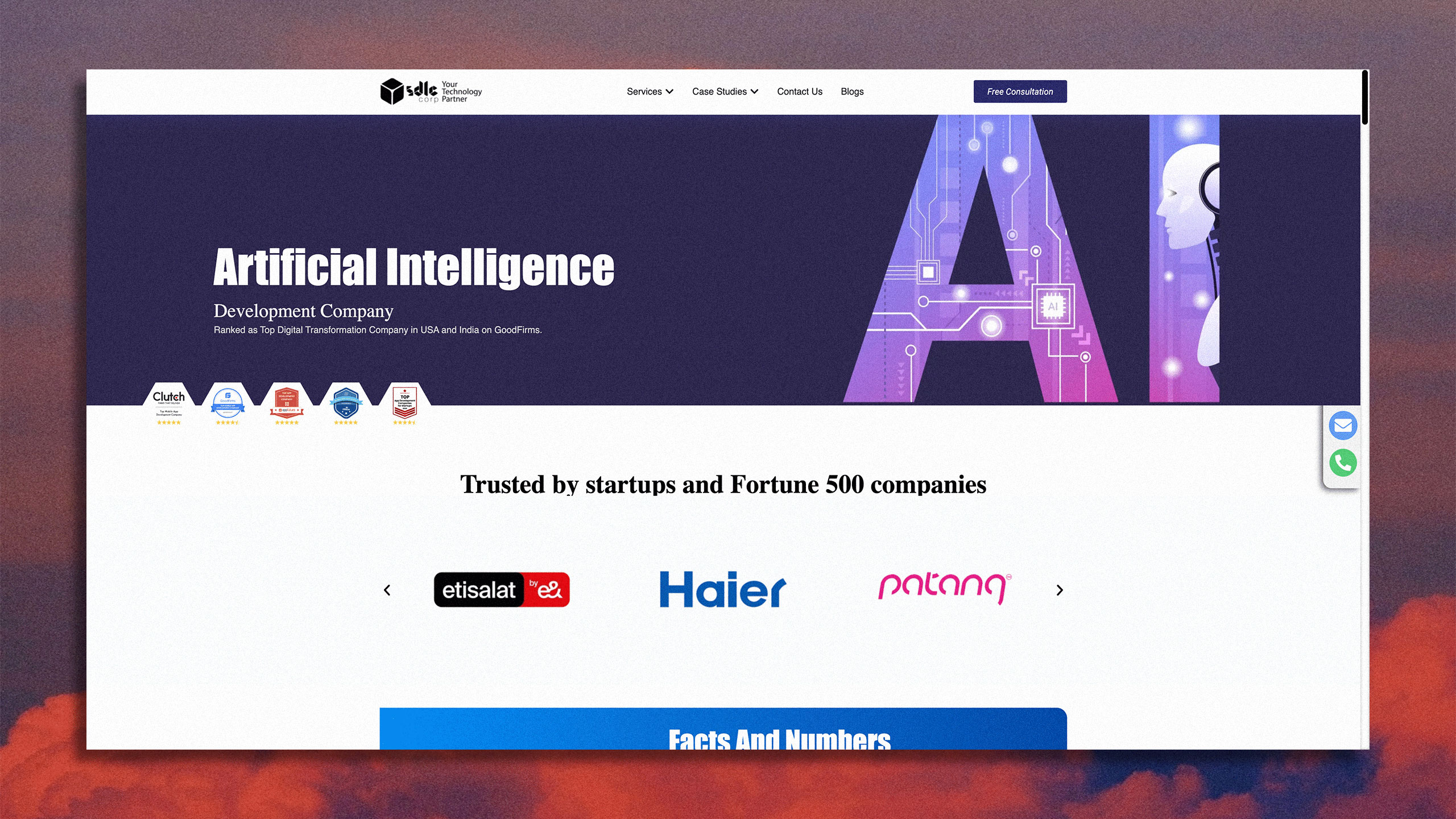
10. iCore Singapore
iCore Singapore offers Sitecore development services with strong regional delivery for clients in Asia-Pacific markets.
Their Sitecore solutions include implementation, integration, and support for educational, financial, and government clients, with Sitecore consulting tailored for data privacy, localization, and multi-language deployments.
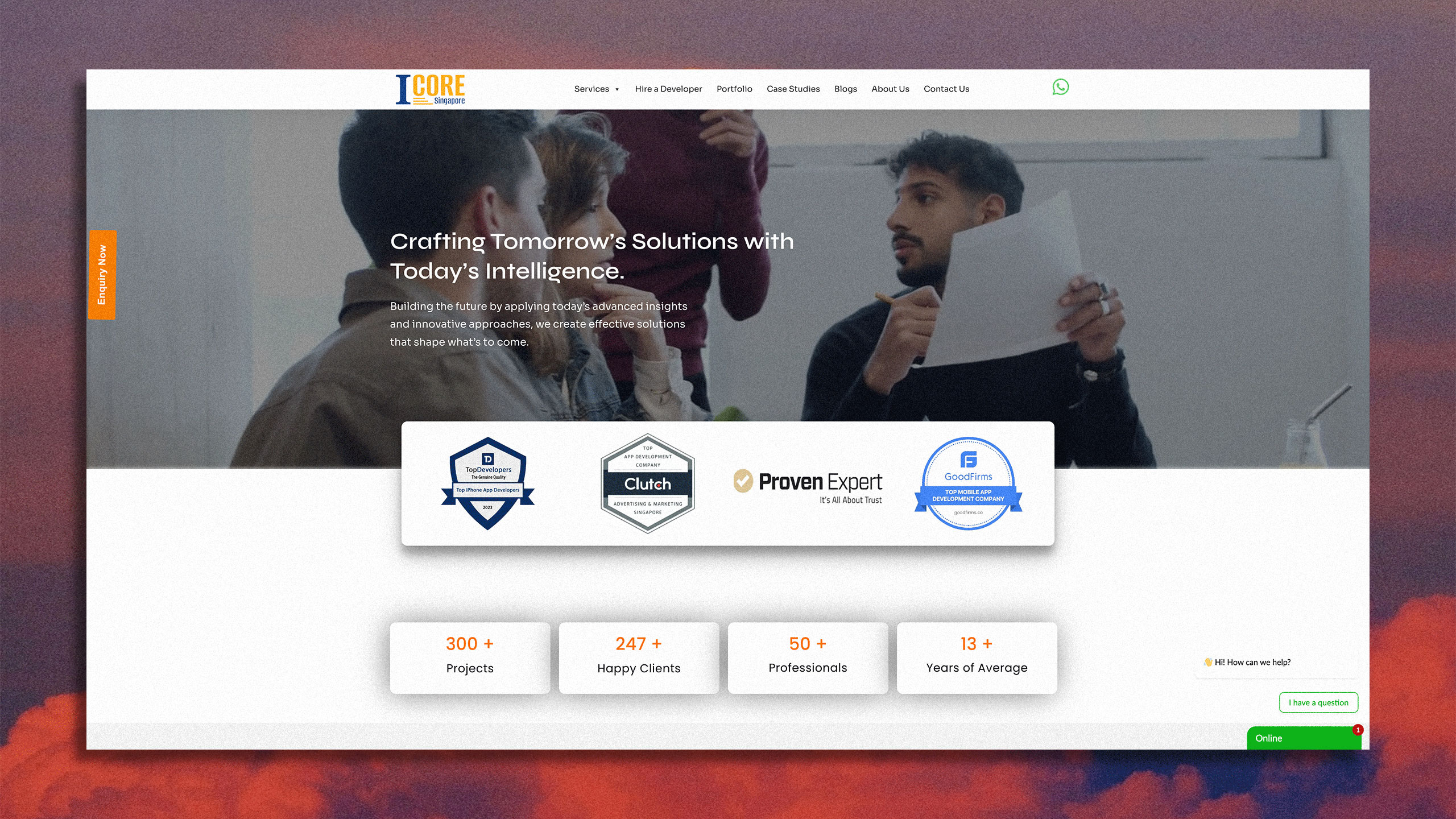
Let’s kickstart the conversation and design stuff people will love.

What Are Sitecore Development Services?
Sitecore development services refer to the suite of technical and strategic capabilities required to build, customize, and maintain digital experiences on the Sitecore Experience Platform. These services encompass front-end and back-end development, architecture design, API integration, personalization logic, and performance optimization tailored to enterprise-grade content management and customer engagement needs. Sitecore development services also include support for headless implementations, multilingual content deployment, and cloud-based scalability, ensuring that digital platforms are secure, responsive, and aligned with business objectives.
How Does a Sitecore Development Service Work?
A Sitecore development service typically begins with a discovery and planning phase to align platform capabilities with business goals, followed by solution architecture design and development sprints focused on implementing Sitecore features such as personalization, workflows, and content structure. The service includes integration with enterprise systems such as CRMs, ERPs, and commerce platforms, as well as rigorous QA, performance testing, and deployment planning. Post-launch, Sitecore support services ensure the platform remains secure, optimized, and adaptable through ongoing enhancements, monitoring, and technical consulting.
What Is a Sitecore Development Service Firm?
A Sitecore development service firm is a specialized technology partner that provides end-to-end consulting, implementation, integration, and support services on the Sitecore platform. These firms offer deep expertise in enterprise architecture, digital experience strategy, and cross-platform integrations to help organizations leverage Sitecore for scalable, personalized customer journeys. Equipped with certified Sitecore developers, solution architects, and strategists, such firms help clients accelerate time-to-value, reduce implementation risk, and ensure long-term platform success through tailored Sitecore solutions.
When evaluating a Sitecore development services firm, it’s essential to understand the depth and breadth of capabilities that enable successful enterprise implementations. Beyond front-end development, leading firms offer strategic guidance and technical execution across the full lifecycle of Sitecore solutions—spanning architecture, integration, optimization, and support. These capabilities are designed to help large organizations unify complex digital ecosystems, integrate Sitecore seamlessly with enterprise platforms like CRM, ERP, and commerce systems, and deliver personalized experiences at scale. The following capabilities highlight what distinguishes top-tier Sitecore partners in the realm of enterprise technology and integration.
What Services Do Sitecore Development Services Firms Provide?
Sitecore Implementation
A Sitecore development services firm leads clients through the end-to-end implementation process, from initial planning and requirements gathering to platform configuration, module customization, and deployment. This includes defining the technical architecture, setting up content hierarchies, implementing workflows, and aligning the platform with business rules to ensure that Sitecore is fully optimized for enterprise use cases. Whether on-premise or in the cloud, the firm ensures the platform is stable, secure, and scalable for future needs.
Sitecore Integration
Sitecore development services firms provide seamless integration of Sitecore with enterprise systems such as CRM, ERP, analytics platforms, DAMs, and eCommerce engines. These integrations enable data synchronization across the ecosystem, allowing for a unified view of customer interactions and real-time personalization. The firm handles API design, middleware setup, and system orchestration to ensure Sitecore functions as the central hub of digital experience management.
Sitecore Architecture & Technical Strategy
A Sitecore firm helps clients design robust, scalable technical architectures tailored to their current infrastructure and long-term digital goals. This includes defining hosting environments, content delivery strategies, database scaling, and cloud optimization—often leveraging Sitecore on Azure or Kubernetes. These architectural decisions ensure the Sitecore platform performs efficiently under enterprise workloads and supports evolving use cases.
Sitecore Personalization & Experience Optimization
Sitecore development firms enable advanced personalization strategies using Sitecore’s Experience Database (xDB) and marketing automation tools. This includes setting up rules-based and behavior-driven content delivery, segmenting users, and leveraging data for real-time content targeting. The firm works closely with stakeholders to define customer journey strategies and ensure Sitecore is configured to deliver measurable engagement and conversion improvements.
Sitecore Upgrades & Migration
Firms support clients with platform upgrades to the latest Sitecore versions or migrations from legacy CMS platforms. This involves content audits, code refactoring, dependency analysis, and performance testing to ensure a smooth transition. Whether moving from Sitecore XP to XM Cloud or migrating from another platform, the firm ensures minimal disruption and full preservation of critical data and functionality.
Sitecore Support & Maintenance
Ongoing Sitecore support includes proactive monitoring, bug fixes, performance tuning, and enhancement rollouts to keep the platform stable and secure. Firms provide SLA-based support tiers, health checks, and security patching to help clients avoid downtime and technical debt. This service is critical for maintaining platform reliability and enabling continuous digital evolution.
Sitecore Consulting & Strategy
Sitecore consulting services guide clients in aligning digital strategy with platform capabilities, offering insights on governance, content operations, personalization roadmaps, and experience design. Firms work collaboratively with internal teams to define KPIs, optimize workflows, and unlock new value from the Sitecore platform. Strategic consulting ensures that Sitecore investments are connected to broader business outcomes.
Headless Sitecore & Composable Architecture
Sitecore development firms implement headless CMS solutions and composable architecture using Sitecore XM Cloud, JSS, and other modern frameworks. This decoupled approach enables greater flexibility in frontend development, faster time-to-market, and integration with microservices or MACH-based ecosystems. Firms guide clients in transitioning to this architecture and managing content delivery across multiple frontends, apps, and devices.

How Long Does a Development Service Engagement Take to Complete?
Understanding the typical timeline of a Sitecore development services engagement is essential for setting clear expectations around planning, execution, and delivery. While timelines can vary based on project complexity, scope, and integration requirements, most engagements follow a structured approach—from discovery and architecture to implementation, testing, and launch. Leading Sitecore development services firms bring proven methodologies and dedicated resources to accelerate delivery without compromising quality, ensuring that enterprise clients can go live on time and with confidence. The following section outlines key phases and estimated durations for a standard Sitecore implementation.
Project Scope and Complexity
The overall scope of the engagement—ranging from a simple marketing site to a fully integrated enterprise digital experience platform—has a direct impact on timeline. A Sitecore development services firm will assess the number of templates, content types, user journeys, and third-party systems involved, as these elements dictate the effort required for design, development, and testing. The more complex the requirements, the longer the engagement typically takes, especially when tailored features or advanced personalization are needed.
Integration Requirements
When Sitecore must be integrated with systems like CRM, ERP, PIM, DAM, or commerce platforms, the timeline increases to account for interface mapping, API development, security validation, and end-to-end testing. A Sitecore development services firm will need to evaluate the stability, accessibility, and documentation of those external systems before scoping integration timelines. Custom integrations or lack of existing middleware can further extend delivery schedules.
Content Migration
If the project involves migrating existing content from a legacy CMS or multiple sources, additional time must be factored in for content auditing, data mapping, transformation, and validation. A Sitecore development services firm will often run parallel workstreams to manage content migration while development is ongoing, but significant manual effort, especially around media assets or multilingual content, can introduce delays if not planned in advance.
Design and UX Requirements
Custom UX and UI design requirements, especially those requiring high levels of interactivity or personalization, add time for wireframing, prototyping, stakeholder reviews, and front-end development. A Sitecore development services firm will typically run a dedicated design sprint or discovery phase to align visual design with platform capabilities, which may extend timelines but ensures brand alignment and better long-term platform usability.
Level of Personalization
Sitecore’s personalization features—ranging from basic rules to advanced behavior-driven content—require additional strategy, configuration, and testing. A Sitecore development services firm will work with clients to define segmentation logic, tagging structures, and customer journey mapping, all of which add time to both planning and QA phases. More advanced personalization strategies, particularly those leveraging xDB or Sitecore CDP, will generally extend timelines.
Stakeholder Availability and Feedback Cycles
The speed of client-side decision-making, stakeholder feedback, and approval cycles can significantly impact the timeline. A Sitecore development services firm depends on timely input for design sign-offs, content validation, and user acceptance testing. Delays in providing access to internal systems, assets, or approvals can result in development pauses, making clear communication and collaboration essential to staying on schedule.
Platform Version and Hosting Environment
Whether the engagement involves Sitecore XP, XM Cloud, or a hybrid deployment influences infrastructure setup, DevOps requirements, and release planning. A Sitecore development services firm will need additional time for cloud provisioning, CI/CD pipeline configuration, and environment-specific tuning if hosting is not yet established or if upgrades are required. Projects involving cloud-native Sitecore setups often benefit from faster deployment cycles but require upfront planning and alignment.
QA, Testing, and User Acceptance
Comprehensive testing—covering functional QA, performance, security, and user acceptance—is a critical phase that requires careful planning and execution. A Sitecore development services firm typically builds in sufficient time for multiple rounds of testing and bug fixes, especially for enterprise-grade implementations. Clients should anticipate time for internal UAT cycles and potentially staggered go-lives if deploying across regions or business units.
How do Sitecore Development Services Firm Price Their Work
When evaluating a Sitecore development services firm, understanding pricing is essential to making an informed investment. Costs can vary significantly based on project scope, complexity, required integrations, and ongoing support needs. While Sitecore engagements are rarely one-size-fits-all, leading firms provide flexible pricing models that align with business objectives—whether through fixed-fee projects, time-and-materials structures, or long-term retainers. This section outlines the key factors that influence pricing and what organizations should expect when budgeting for Sitecore development, implementation, and support.
Project Scope and Deliverables
Pricing is heavily influenced by the breadth and depth of the engagement, including the number of page templates, modules, components, and features required. A Sitecore development services firm will assess the scope during discovery and tie pricing to the overall volume of work, complexity of user flows, and integration points. Larger or multi-phase rollouts involving custom development, multilingual sites, or personalization frameworks typically command higher fees due to increased resource needs and extended timelines.
Type of Engagement Model
Whether the engagement is structured as a fixed-fee project, a time-and-materials agreement, or a monthly retainer has a direct impact on cost. Fixed-fee models are typically used for well-defined implementations with minimal scope drift, while time-and-materials are preferred for agile builds or ongoing workstreams. A Sitecore development services firm may also offer retainer-based pricing for long-term support, enhancements, or platform optimization, with rates adjusted based on the level of commitment and hours reserved.
Platform Version and Licensing Requirements
The chosen Sitecore platform version—such as Sitecore XP, XM Cloud, or a composable setup—can influence both implementation cost and associated licensing. A Sitecore development services firm will factor in the level of technical effort required for cloud-native features, SaaS readiness, or hybrid environments, often bundling advisory or configuration work into overall pricing. Firms may also support clients in navigating Sitecore’s licensing structure, which itself is a separate cost from development.
Integration Complexity
The number and nature of third-party system integrations—such as CRMs, ERPs, DAMs, analytics tools, or commerce platforms—significantly affect pricing. A Sitecore development services firm will estimate the effort involved in API development, data mapping, and security validation, which are typically billed as separate workstreams within the engagement. Custom or undocumented integrations often lead to higher costs due to additional testing and risk management requirements.
Design and UX Requirements
Custom UX and UI design services, particularly those involving interactive elements or accessibility compliance, are priced separately from core development. A Sitecore development services firm may include visual design, prototyping, and front-end development under a distinct design phase, with costs based on creative direction, stakeholder involvement, and iteration cycles. More bespoke interfaces with animations or mobile responsiveness often require specialized design resources, which increases the overall engagement cost.
Timeline and Resource Allocation
The timeline of the project can influence pricing based on resource intensity. A Sitecore development services firm may apply premium rates if a client requires an accelerated delivery schedule or dedicated teams. Conversely, extended timelines with phased rollouts may allow for more cost-efficient resource planning. In either case, pricing is calibrated to the number of developers, architects, QA engineers, and project managers needed to meet key milestones.
Support and Maintenance Scope
Ongoing Sitecore support, maintenance, and optimization are typically priced as recurring monthly retainers or hourly packages. A Sitecore development services firm will base support pricing on the number of monthly hours committed, the level of responsiveness required (e.g., 24/7 vs. business hours), and the complexity of the solution in place. Enhanced SLAs, proactive monitoring, and continuous improvement initiatives are often bundled into higher-tier support plans.
Why Hire a Sitecore Development Services Firm

Choosing to work with a Sitecore development services firm can be a strategic advantage for organizations aiming to maximize their investment in the platform. While internal teams may have foundational capabilities, specialized firms bring the technical depth, cross-industry experience, and integration expertise needed to fully leverage Sitecore’s enterprise features. From accelerating implementation timelines to optimizing long-term performance and personalization, a Sitecore development partner helps ensure the platform delivers measurable business value. The following section outlines the key benefits of engaging with a dedicated Sitecore development services firm.
Platform Expertise and Technical Specialization
Sitecore is a powerful but complex platform, requiring deep technical expertise to implement correctly and scale effectively. Sitecore development services firms bring certified developers, architects, and strategists who understand the platform’s architecture, APIs, personalization engine, and cloud-native features. This specialized knowledge enables businesses to avoid costly missteps, maximize platform capabilities, and accelerate time to value with precision.
Seamless Enterprise Integration
Integrating Sitecore with enterprise systems such as CRM, ERP, PIM, and analytics platforms is critical for delivering a unified digital experience. Sitecore development services firms have the technical depth and integration frameworks needed to connect these systems securely and efficiently. Their experience ensures data flows seamlessly across platforms, empowering marketing and IT teams to deliver personalized content, track performance, and maintain consistency at scale.
Accelerated Time to Market
Sitecore development services firms bring proven methodologies, agile delivery models, and reusable components that significantly reduce implementation timelines. By relying on seasoned project teams, businesses avoid delays associated with internal learning curves or resource constraints. These firms are structured to move fast while maintaining quality, helping organizations launch high-performing digital experiences more quickly and effectively.
Bandwidth and Resource Flexibility
Internal IT and development teams are often stretched thin or focused on core systems, leaving little capacity for major platform rollouts. A Sitecore development services firm provides the flexibility to scale resources up or down based on project needs. This allows businesses to stay focused on strategic priorities while leveraging external expertise to handle development, support, and optimization without overextending internal teams.
Long-Term Support and Optimization
Beyond implementation, Sitecore development services firms offer structured support plans, performance tuning, and platform optimization to ensure long-term success. These services help clients stay current with Sitecore upgrades, security patches, and evolving best practices. Firms also monitor usage patterns, test enhancements, and provide actionable insights, ensuring the platform continues to evolve with the business and its digital strategy.
Strategic Guidance and Digital Alignment
Sitecore development services firms do more than write code—they act as strategic advisors who align platform decisions with broader digital goals. Whether it’s defining content governance models, mapping customer journeys, or developing personalization frameworks, these firms bring a cross-functional perspective that blends business strategy with technical execution. This ensures every platform enhancement supports measurable outcomes.
How to Choose The Most Reliable Sitecore Development Services Firm
Selecting the right Sitecore development services firm is a critical decision that can significantly impact the success of your digital initiatives. With varying levels of expertise, service models, and industry experience across firms, it’s essential to evaluate potential partners based on both technical capabilities and strategic alignment. The right partner should not only understand Sitecore’s architecture and integration potential but also have a proven track record of delivering enterprise-grade solutions at scale. The following section outlines key considerations to help guide the selection process and ensure long-term value from your Sitecore investment.
Proven Experience with Sitecore Implementations
When evaluating a Sitecore development services firm, look for a proven history of successful Sitecore implementations that match the size, complexity, and industry of your organization. Past performance is one of the most reliable indicators of future success—firms with established experience understand how to tailor Sitecore solutions to complex business requirements, mitigate risks, and deliver enterprise-grade results.
Integration Capabilities with Enterprise Systems
A top-tier Sitecore development services firm should demonstrate strong expertise in integrating Sitecore with your existing technology stack, including CRM, ERP, PIM, and marketing automation platforms. This includes familiarity with API development, middleware configuration, data synchronization, and security protocols. Firms that can connect Sitecore seamlessly into your broader digital ecosystem will unlock the full value of your investment.
Depth of Technical Expertise and Certifications
Technical depth is essential when working with a platform as robust as Sitecore. Look for firms that employ certified Sitecore developers, architects, and strategists with hands-on experience across versions—including Sitecore XP, XM Cloud, and composable architecture. Certified professionals are more likely to deliver solutions that are secure, scalable, and aligned with Sitecore’s best practices.
Clear Methodology and Project Management Approach
A strong Sitecore development services firm will have a well-defined delivery methodology—whether agile, hybrid, or waterfall—and the ability to adapt to your internal processes. Look for partners that provide transparency through each phase of the project, use proven tools for collaboration, and demonstrate disciplined project governance to ensure deadlines and budgets are met.
Post-Launch Support and Optimization Services
Choosing a firm that offers more than just implementation is critical. Look for Sitecore development partners that provide long-term support, maintenance, and optimization services, including performance monitoring, upgrades, and enhancement roadmaps. A firm that stays engaged beyond go-live can help ensure your platform continues to deliver value and evolves alongside your business needs.
Strategic Alignment with Business Objectives
The right Sitecore development services firm should not only understand the technical requirements of your project but also align with your broader business goals. Look for firms that ask the right strategic questions, offer guidance on personalization, content governance, and customer journey optimization, and ensure the Sitecore solution supports measurable business outcomes.
Industry or Domain Expertise
While technical proficiency is critical, familiarity with your industry adds another layer of value. Firms with experience in your vertical—whether healthcare, finance, retail, or manufacturing—will be better equipped to anticipate regulatory considerations, customer behavior patterns, and operational challenges, resulting in faster onboarding and more relevant platform design.
15 Questions To Ask Sitecore Development Services Firm Before You Hire One
Before selecting a Sitecore development services firm, it’s important to ask the right questions to ensure the partner you choose is equipped to meet your organization’s technical and strategic needs. From understanding their experience with specific Sitecore features to evaluating their integration capabilities and post-launch support structure, the questions you ask upfront can reveal a firm’s true fit for your project. This section outlines key questions prospective clients should consider asking to make a confident, informed hiring decision.
Here are 15 thoughtful and strategic questions a prospective client might ask before hiring a Sitecore development services firm, each designed to assess the firm’s technical capabilities, industry experience, and overall fit:
- What experience do you have with the specific version of Sitecore we plan to implement (e.g., Sitecore XP, XM Cloud, composable architecture)?
- Can you share case studies or client examples that demonstrate measurable results from past Sitecore development projects?
- What is your approach to integrating Sitecore with enterprise systems like CRM, ERP, DAM, or ecommerce platforms?
- How do you structure your project delivery methodology, and what tools do you use for collaboration and project management?
- Do you have certified Sitecore developers, architects, and strategists on your team?
- What is your typical project timeline for an implementation of our size and complexity?
- How do you handle content migration from legacy CMS platforms into Sitecore?
- What types of ongoing support and maintenance services do you offer after launch?
- Can you explain how you manage personalization, testing, and optimization strategies within Sitecore?
- What security practices do you follow throughout the development and deployment process?
- How do you ensure performance and scalability in high-traffic enterprise Sitecore environments?
- Do you offer flexible engagement models (e.g., fixed-price, time-and-materials, or long-term retainer)?
- How do you collaborate with internal client teams during development and post-launch?
- What is your experience working with organizations in our industry or regulatory environment?
- How do you measure project success, and what KPIs or business outcomes do you typically track for Sitecore engagements?
What Experience Do You Have With the Specific Version of Sitecore We Plan to Implement (e.g., Sitecore XP, XM Cloud, Composable Architecture)?
Sitecore offers multiple versions and deployment models—each with distinct architectures, capabilities, and development considerations. Asking about experience with your specific version ensures the firm is equipped to handle the nuances of your chosen platform, whether it’s a traditional Sitecore XP implementation, a modern XM Cloud deployment, or a composable DXP configuration. A qualified firm should be able to speak to the technical and strategic implications of the version you’re adopting and provide relevant implementation examples that align with your goals.
Can You Share Case Studies or Client Examples That Demonstrate Measurable Results From Past Sitecore Development Projects?
Case studies reveal how a firm has translated Sitecore’s capabilities into business value for real clients. Look for examples that reflect measurable outcomes—like improved user engagement, faster time to market, or higher conversion rates. This question helps validate a firm’s credibility and provides insight into how they’ve handled challenges similar to yours. It also allows you to assess whether they have experience with organizations of your size, complexity, and industry.
What Is Your Approach to Integrating Sitecore With Enterprise Systems Like CRM, ERP, DAM, or Ecommerce Platforms?
Sitecore rarely functions in isolation—its effectiveness depends on how well it integrates with surrounding systems. Asking about integration capabilities ensures the firm can connect Sitecore to platforms such as Salesforce, SAP, Microsoft Dynamics, or Adobe DAM. Their answer should demonstrate familiarity with APIs, middleware, authentication protocols, and data synchronization best practices. A strong integration strategy is essential for enabling personalized experiences and unified customer data across your tech stack.
How Do You Structure Your Project Delivery Methodology, and What Tools Do You Use for Collaboration and Project Management?
Understanding a firm’s delivery methodology—whether Agile, hybrid, or waterfall—gives you visibility into how they manage timelines, risks, and communication. Tools like Jira, Confluence, Figma, or Azure DevOps indicate the level of transparency and organization they bring to projects. A well-structured approach ensures that milestones are met, feedback cycles are productive, and your internal teams remain aligned with progress throughout the engagement.
Do You Have Certified Sitecore Developers, Architects, and Strategists on Your Team?
Sitecore certifications are an important indicator of a firm’s technical proficiency and commitment to platform best practices. Developers, architects, and digital strategists with official Sitecore credentials bring validated knowledge that reduces implementation risk and increases the likelihood of long-term platform stability. This question helps you assess the depth of the firm’s bench and whether they’re equipped to handle both technical execution and strategic planning.
What Is Your Typical Project Timeline for an Implementation of Our Size and Complexity?
Timelines can vary based on the project’s scale, features, and integration needs, so it’s important to ask for a realistic estimate based on similar engagements. This question helps set expectations and ensures the firm has a structured process for discovery, design, development, QA, and deployment. A credible partner will also explain factors that could accelerate or delay the timeline and how they manage resource allocation to stay on schedule.
How Do You Handle Content Migration From Legacy CMS Platforms Into Sitecore?
Migrating content from a legacy CMS can be a complex and risk-prone process. This question allows you to gauge whether the firm has a structured approach for auditing, mapping, transforming, and importing content into Sitecore. The ideal answer should include both automated and manual validation processes, strategies for handling media and metadata, and consideration for SEO and multilingual content. Smooth content migration is essential for a seamless transition to the new platform.
What Types of Ongoing Support and Maintenance Services Do You Offer After Launch?
Post-launch support is just as critical as the initial implementation. Ask about the firm’s ability to provide technical support, platform monitoring, bug resolution, upgrades, and optimization. Leading Sitecore development services firms offer support packages with defined SLAs, ticketing systems, and proactive performance monitoring. Ongoing maintenance ensures your Sitecore solution remains secure, stable, and aligned with evolving business needs.
Can You Explain How You Manage Personalization, Testing, and Optimization Strategies Within Sitecore?
Sitecore’s real value lies in its ability to personalize experiences and optimize content based on user behavior. This question explores whether the firm can help you go beyond basic implementation to activate Sitecore’s advanced features—such as A/B testing, audience segmentation, and behavioral triggers. Look for responses that mention data strategy, xDB setup, and continuous improvement cycles based on performance analytics.
What Security Practices Do You Follow Throughout the Development and Deployment Process?
Security is non-negotiable in enterprise environments. Ask how the firm ensures secure development—such as following OWASP best practices, implementing role-based access control, and securing APIs and third-party integrations. Their deployment process should include secure CI/CD pipelines, regular vulnerability scanning, and governance frameworks to minimize risk. This question is especially important if your business operates in a regulated industry or handles sensitive data.
How Do You Ensure Performance and Scalability in High-Traffic Enterprise Sitecore Environments?
A Sitecore solution must be optimized for performance and scalability to support spikes in traffic, global content delivery, and future business growth. This question helps uncover the firm’s experience with infrastructure planning, caching strategies, CDN implementation, and performance tuning. Look for answers that reference load testing, database optimization, and cloud scalability—especially if you’re targeting a global or high-demand audience.
Do You Offer Flexible Engagement Models (e.g., Fixed-Price, Time-and-Materials, or Long-Term Retainer)?
Different organizations have different procurement models and risk tolerances. Asking about engagement models helps ensure the firm can align with your internal budgeting, timeline, and resourcing structure. Whether you need a defined scope with a fixed price, flexibility for evolving work under time-and-materials, or a retained partner for ongoing support, the firm should offer models that support strategic and financial predictability.
How Do You Collaborate With Internal Client Teams During Development and Post-Launch?
Successful Sitecore engagements require close coordination between the vendor and internal teams—including marketing, IT, and product stakeholders. This question clarifies how the firm handles collaboration, whether they embed resources, host regular check-ins, or use shared documentation hubs. Strong collaboration ensures smooth knowledge transfer, reduces friction, and helps internal teams become self-sufficient post-launch.
What Is Your Experience Working With Organizations in Our Industry or Regulatory Environment?
Industry-specific knowledge can greatly accelerate onboarding and improve implementation outcomes. Ask whether the firm has experience with the compliance requirements, customer behavior, or operational workflows specific to your sector—whether it’s healthcare, financial services, education, or retail. Familiarity with industry norms and challenges enables the firm to tailor Sitecore configurations more effectively and avoid avoidable missteps.
How Do You Measure Project Success, and What KPIs or Business Outcomes Do You Typically Track for Sitecore Engagements?
Defining success from the outset helps ensure alignment between technical execution and business value. Ask how the firm connects Sitecore deliverables to broader KPIs—such as engagement rates, lead generation, speed-to-market, or operational efficiency. Firms that take a performance-focused approach and commit to measurable outcomes are better positioned to deliver sustained value beyond launch.
Searching for the right Sitecore Development Services Firm?
Hiring a Sitecore development services firm is more than a tactical decision—it’s a strategic investment in the long-term success of your digital experience platform. From implementation and integration to personalization and optimization, these firms offer the technical depth and enterprise expertise needed to unlock the full value of Sitecore. Whether bridging bandwidth gaps, accelerating timelines, or driving measurable business outcomes, the right partner ensures your platform performs as a scalable, secure, and future-ready foundation for growth. As digital ecosystems grow more complex, the importance of selecting a Sitecore firm with proven capabilities and cross-functional experience becomes critical to delivering connected, high-performing customer experiences.
G & Co. stands out as a trusted Sitecore development services firm for enterprise brands seeking to align technology with business outcomes. With deep expertise in Sitecore implementation, enterprise system integration, and digital experience architecture, G & Co. helps organizations streamline complex deployments, optimize cross-platform functionality, and personalize content at scale. Their structured delivery approach, certified talent, and focus on measurable impact make them a strategic partner for brands looking to maximize performance across every layer of their Sitecore ecosystem.
Submit an inquiry to G & Co. on our contact page or click on the blue "Click to Contact Us" button on the bottom right corner of your screen for your convenience. We look forward to hearing from you.






%20(1).png)






